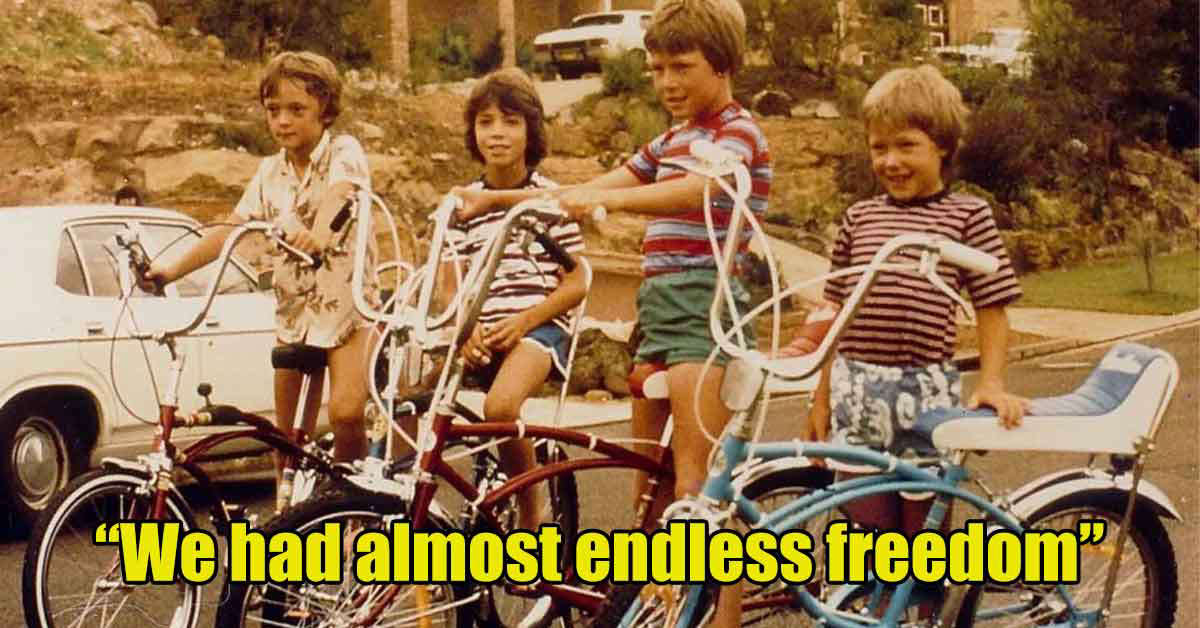Why Gen Z Loves Little Britain Despite Its Cancellation

Table of Contents
Nostalgia and the Power of Early Internet Culture
Little Britain's resurgence amongst Gen Z is intrinsically linked to the power of early internet culture. For many, their first exposure to the show wasn't through traditional television broadcasts but through YouTube clips and viral snippets that circulated across early social media platforms. This fragmented, yet highly accessible, introduction to the show fostered a unique connection.
- Viral skits and memorable quotes: Short, easily shareable clips featuring characters like Daffyd Thomas ("the only gay in the village") or Lou and Andy became instant memes, spreading organically across the internet long after the show's original run.
- Early internet memes and their influence: Little Britain’s distinctive characters and catchphrases provided fertile ground for early internet meme culture, solidifying its place in online history for a generation discovering it years later. The show's legacy continues to influence online humor.
- Shared viewing experience among friends: Discovering and sharing these clips with friends created a communal viewing experience, further embedding the show in the cultural consciousness of Gen Z.
This nostalgic connection is crucial. Gen Z, like other generations before them, finds comfort and connection in the media they consumed during their formative years. The familiarity and shared cultural references fostered by this early internet exposure contribute significantly to Little Britain's continued appeal. The impact of nostalgia on Gen Z's media consumption habits cannot be overstated; it’s a driving force behind the renewed interest in seemingly outdated content.
The Enduring Comedic Appeal of Little Britain
Despite the problematic elements, Little Britain possesses a unique comedic style that continues to resonate. The show's enduring appeal stems from its clever use of several comedic techniques:
- Character-driven humor and eccentric personalities: The show’s success hinges on its memorable and often exaggerated characters, each with distinct quirks and mannerisms. This character-focused approach transcends cultural boundaries and appeals to a broad audience.
- Slapstick and physical comedy: The show liberally employs slapstick and physical comedy, a style universally understood and appreciated, regardless of cultural background or generational differences.
- Witty writing and memorable catchphrases: The sharp writing and memorable catchphrases contribute to the show’s lasting impact. Lines like "Computer says no!" have transcended the show itself and entered the lexicon of popular culture.
While acknowledging the problematic nature of some of the show's portrayals, it's important to recognize the undeniable comedic talent that went into its creation. The comedic genius, despite its flaws, remains a significant factor in Gen Z's ongoing fascination with Little Britain.
Ironic Appreciation and the "So Bad It's Good" Phenomenon
Gen Z's engagement with Little Britain isn't solely driven by nostalgia or comedic appeal; it also incorporates a significant element of ironic appreciation. This generation is acutely aware of the show's problematic aspects, yet they engage with it in a critical, often self-aware way.
- Understanding the social and cultural context of the show's creation: Gen Z viewers understand the show's historical context, recognizing that the humor often reflects the societal norms and biases of the time. This context is crucial to interpreting the show’s content.
- Critical analysis of the show's flaws as a form of engagement: Rather than passively consuming the show, Gen Z actively critiques its flaws, engaging in discussions about representation and offensive stereotypes.
- The "so bad it's good" phenomenon and its appeal to a younger generation: Many Gen Z viewers embrace Little Britain through the lens of the "so bad it's good" phenomenon, finding humor in its dated and sometimes offensive elements.
This "ironic consumption" is a hallmark of Gen Z’s media engagement, demonstrating a nuanced approach to content that acknowledges both its strengths and weaknesses. Their critical analysis adds another layer to their appreciation of the show.
The Impact of Streaming and Algorithm-Driven Discovery
The accessibility of Little Britain through streaming platforms has also played a crucial role in its resurgence. Streaming services' algorithms, designed to suggest content based on viewing habits, have inadvertently reintroduced the show to a new generation.
- Accessibility of the show on various platforms: Unlike its original broadcast, Little Britain is readily available on various streaming platforms, eliminating geographical and accessibility barriers.
- Algorithm-driven recommendations exposing it to new audiences: Streaming algorithms effectively bypass traditional gatekeepers and expose the show to viewers who might never have encountered it otherwise.
- Lack of gatekeeping and traditional media filters: The decentralized nature of streaming platforms removes the traditional filters of broadcast television, allowing for a broader range of content to reach viewers organically.
This ease of access, combined with algorithmic recommendations, represents a stark contrast to the show's initial broadcast and its current reception. The digital landscape has facilitated a second life for Little Britain, allowing it to reach a new audience entirely.
Conclusion
Gen Z's continued engagement with Little Britain, despite its cancellation, is a complex phenomenon driven by a confluence of factors. Nostalgia for early internet culture, the enduring comedic appeal of its characters and style, ironic appreciation fueled by critical analysis, and the ease of access via streaming platforms all contribute to its surprising popularity. While acknowledging the problematic aspects of the show and its portrayal of certain characters is crucial, it’s equally important to understand the context surrounding its lasting impact on comedy. The show’s legacy remains complicated, but its enduring popularity with Gen Z prompts a thoughtful discussion about the evolution of humor and social awareness. While understanding the controversies surrounding Little Britain, engage in a thoughtful discussion about its lasting impact and the complexities of cultural appreciation. Consider the evolution of humor and social awareness in the context of Little Britain's enduring, albeit complicated, popularity with Gen Z.

Featured Posts
-
 Route 15 On Ramp Closure Due To Accident
May 22, 2025
Route 15 On Ramp Closure Due To Accident
May 22, 2025 -
 Abn Amro Ziet Occasionverkoop Fors Toenemen Groeiend Autobezit Als Drijfveer
May 22, 2025
Abn Amro Ziet Occasionverkoop Fors Toenemen Groeiend Autobezit Als Drijfveer
May 22, 2025 -
 Improving Virtual Meetings Googles Effective Strategies
May 22, 2025
Improving Virtual Meetings Googles Effective Strategies
May 22, 2025 -
 Tuerkiye Italya Ortakligi Yeni Nato Goerevi
May 22, 2025
Tuerkiye Italya Ortakligi Yeni Nato Goerevi
May 22, 2025 -
 Abn Amro Huizenprijzen Betaalbaar Volgens Geen Stijl Reactie En Analyse
May 22, 2025
Abn Amro Huizenprijzen Betaalbaar Volgens Geen Stijl Reactie En Analyse
May 22, 2025
